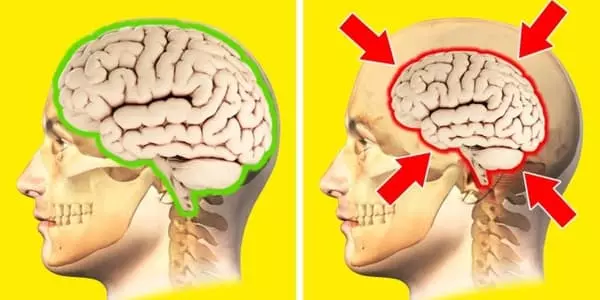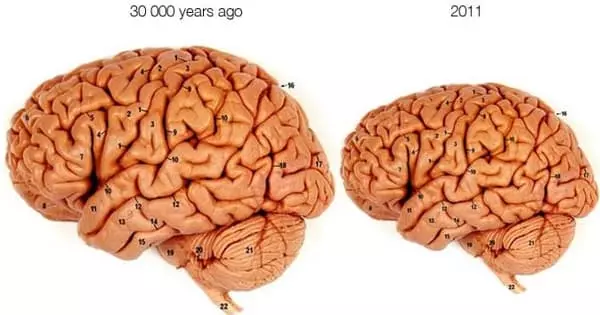As people get older, their brains shrink slightly. Injuries, certain diseases and disorders, infections, and alcohol use are all potential causes of brain shrinkage. The brain ages in the same way that the body does. However, not all brains age in the same way.
Reduced brain mass, shrinkage of areas of the brain containing nerve fibers, fewer connections between neurons, and changes in the neurotransmitter systems that communicate information are some of the changes that occur. All of these factors may contribute to some of the age-related declines in cognitive abilities that occur as part of the natural aging process.
A scientist has confirmed what many people who watch cable news have suspected for a long time: human brains are shrinking.
According to J.M. Stibel, a brain scientist at the Los Angeles Natural History Museum and the study’s author, the size of human brains has decreased dramatically over the last 50,000 years. In fact, the study discovered that modern homosapiens’ brain size has shrunk by more than 5%. Stibel discovered evidence that brain size relative to our bodies has decreased as well, owing primarily to obesity.
The size of human brains has decreased dramatically over the last 50,000 years. In fact, the study discovered that modern homosapiens’ brain size has shrunk by more than 5%.
J.M. Stibel
Despite this, the paper notes that “general intelligence and educational attainment have all risen over much of the past century.” Indeed, environmental factors like health, education, and technology may have compensated for the fact that our brains were shrinking — or that brain volume isn’t strongly correlated with intelligence.
It is worth noting that Stibel used IQ as a measure of intelligence. The benchmark has a long and shady history of being used to disenfranchise marginalized communities, and it’s also been widely chastised for combining various types of intelligence into one overly simplistic metric. Nonetheless, it is widely regarded as a standard benchmark for assessing cognitive function.
Stibel observes that a “significant decrease in IQ has been noted in many parts of the world over the past 30 years, with the largest declines occurring across industrialized nations.” That is, environmental factors may not be able to help us increase or maintain our intelligence in the long run.

While many of the causes of brain decline are unavoidable, there is some evidence that certain lifestyle changes may help protect the brain against age-related declines. Regular exercise is one factor that may help protect the brain from shrinkage as people grow older.
There are numerous compelling reasons to maintain a healthy level of physical fitness. Aside from being good for your physical health, regular exercise has been shown to improve cognitive functioning. And, as if you needed another reason to hit the gym, one study found that being fit can help minimize the inevitable brain shrinkage that comes with aging.
Researchers discovered these changes in brain volume in a study that involved reviewing exercise data from over 1,200 adults around the age of 40, all of whom were also participants in the larger Framingham Heart Study. When these participants were given MRI scans 20 years later, those who were less fit in midlife had much lower levels of brain tissue later in life.
They discovered that people with low fitness levels had a much higher rise in diastolic blood pressure after just a few minutes on a slow-moving treadmill. These individuals were more likely to have reduced brain volume at the age of 60.
Although not all brain shrinkage is preventable, such research suggests that finding ways to control your blood pressure may help. Regular exercise and a well-balanced diet are two things that may help you control your blood pressure.
Other protective factors, such as a healthy diet, challenging leisure activities, socializing with others, avoiding smoking, and limiting alcohol consumption, have been shown in studies to reduce age-related brain declines in addition to exercise.
















